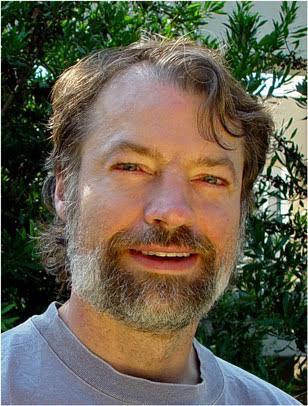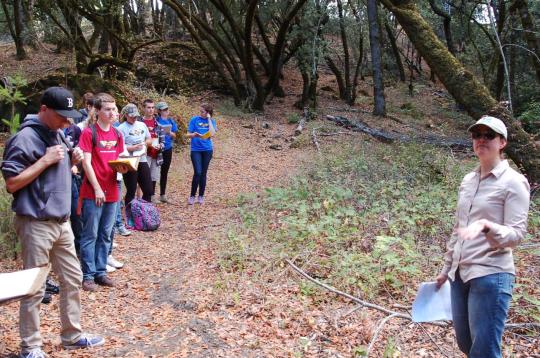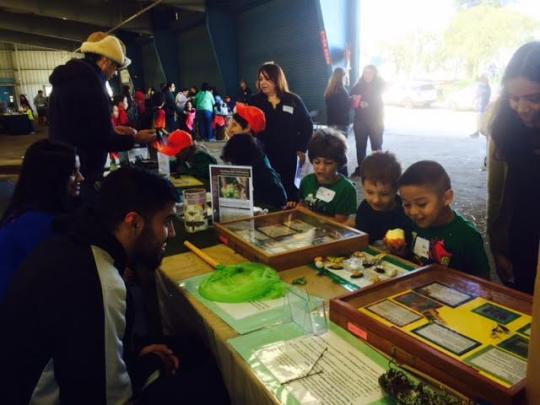Spotlight: Service-Learning Case Study in Biology
"Service-learning makes students work and behave professionally, I've seen it work in action and it is stunning."
It was obvious within a few minutes of talking with biology professor Nathan Rank, that he loves his field of study, his role as a veteran professor that many students look up to, and his service-learning projects. Dr. Nathan Rank has been teaching at Sonoma State University since 1995. He's been teaching service-learning in his courses for 9 years and feels he will always continue to do so.
As an undergraduate, Rank studied biology at Kalamazoo College in Michigan, he recalled, "I learned the power of learning through service while interning for a nature preserve in college." His internship also made him aware of how fun it is to teach students about nature. He was a Ph.D. candidate in Ecology and Evolutionary Biology at UC Irvine, followed by earning his Ph.D. in Zoology from UC Davis. Rank then attended Free University of Brussels in Belgium, the University of Basle, and the Swiss Federal Institute of Technology, both in Switzerland for post doctoral experience.
Science 120 is a service-learning course for freshman interested in science majors. Over the course of a year, students learn how to conduct science with focus on Sonoma County's watershed area. Students deal with real-world issues of environmental sustainability through hands-on work and outdoor field experiences. They visit, work with, and get class visits from the Fairfield Osborn Preserve and the Sonoma County Water Agency. The service-learning aspect is that students conduct their own research project for these community partners. Their projects aredisplayed and presented at SSU's annual Science Symposium the end of the year. The community partners attend the presentations and have always had great things to say about the projects. Rank says, "Service-learning makes students work and behave professionally, I've seen it work in action and it is stunning." Now senior, Megan Stock, recalled her freshman year in Science 120 as very helpful because, "It gave me the opportunity to learn about the native fauna of Sonoma County and the ability to do something I enjoyed which also helping the community in a positive way."
Other service-learning projects Nathan Rank has completed over his impressive tenure is having students go to local elementary schools to teach children about nature. Michele Mendoza, a kindergarten teacher at Fairmont Elementary in Vacaville, CA (and an SSU alum) was very pleased with her service-learning experience saying, "The students taught a lesson on insects and the body parts of insects to my students. While at the school they were very professional with the staff, knowledgeable of the content and friendly to the students. The realia of the lessons was something that my students might otherwise not have had the opportunity to see if it hadn't been for them. It was time well spent and an experience I would highly recommend."
Nathan Rank was constantly reminding me what some people tend to forget, "The community is hungry, they want service from us." Another project was done with the Girl Scouts of Northern California in which students attended Girl Scout Day for the Charles M. Schulz Museum to display information learned in their Entomology class. Faith Govan, the Youth Group and Public Programs Coordinator at the museum recalled that, "The students were amazing and they brought very cool stuff. The Girl Scouts had a blast and I could tell the station they created was one of the most popular because of the huge group of girls constantly surrounding it! I honestly can't think of a thing they could have done better. Thank you so much for helping make this event fabulous!"
Entomology students also attended Sonoma County Farm Bureau's Ag Days, an event in which elementary school students are exposed to Sonoma County agriculture through displays, tours, and hands-on activities. Students from Rank's class had a popular display that taught kids about butterflies, pollination, and other features of insects. Nathan Rank and Sonoma State's Biology Outreach Coordinator, Kerry Wininger, realize that SSU is lucky to have a well developed service-learning program saying, "We are thrilled to be supported by the university to create experiences like these for our students, community organizations, and the public!"
At the end of our meeting Rank explained that, "I'll admit that my version of service-learning is too time consuming, so I understand why some professors don't want to do it." However, he encourages professors to try out service-learning for its tremendous amount of benefits for students, community partners, and the professor's themselves by saying, "Seeing the results of service-learning afterward make it all worthwhile."

Author: Maddie Wright







